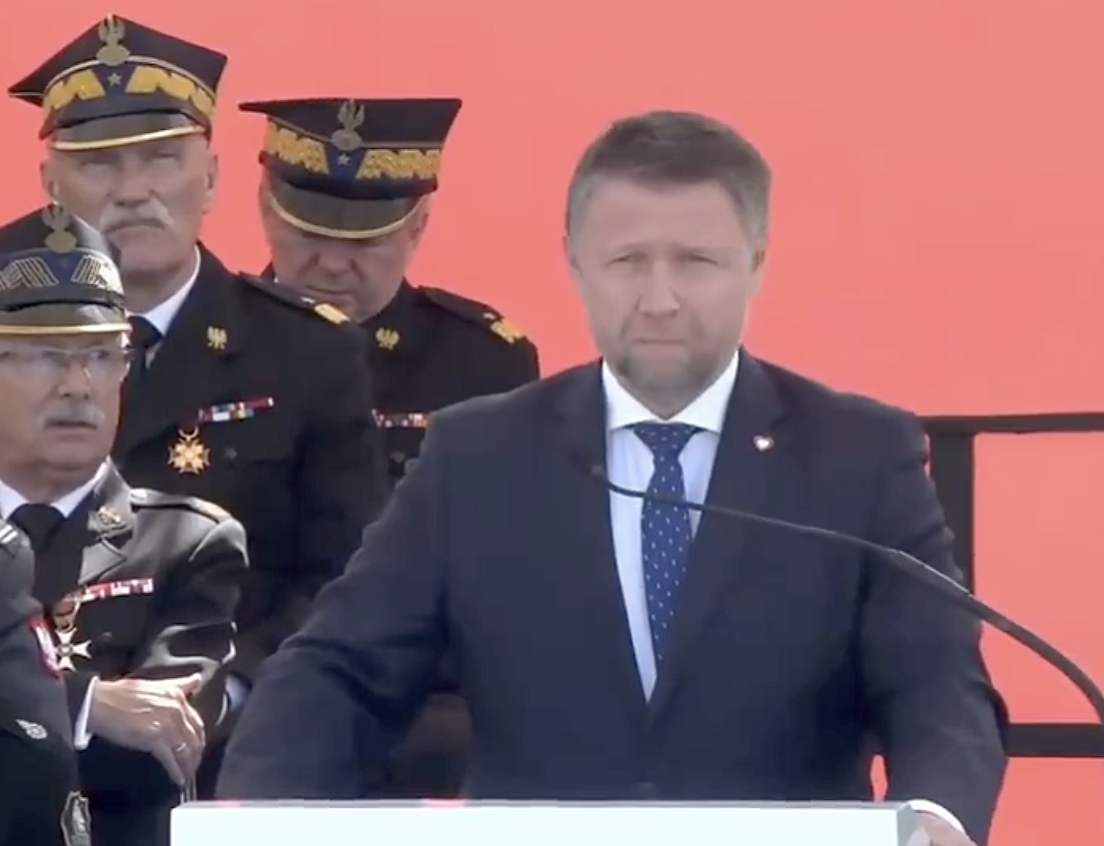Poland’s outgoing interior minister, Marcin Kierwiński, who is standing as the top candidate for Donald Tusk’s Civic Coalition in Warsaw for the EU parliament elections, is accused of being drunk while speaking at an official function honoring firefighters where Polish President Andrzej Duda handed out promotions and state honors.
Kierwinski’s speech was slurred and most commentators suggested that he was drunk or ill.
The minister himself rushed to explain the situation, citing technical problems with the public address system and reporting that he had been to the Polish police’s headquarters to voluntarily subject himself to a breathalyzer test, which showed a 0.0 blood-alcohol level. However, there are already questions being raised about these claims.
Kierwiński has been a key member of the Donald Tusk government and has played a pivotal role in the brutal actions against conservative Law and Justice (PiS) politicians, such as the arrest of two MPs pardoned by President Duda while they were at a meeting in the presidential palace. Recently his ministry instructed the police to prosecute PiS leader Jarosław Kaczyński for removing a wreath insulting the memory of his tragically deceased brother President Lech Kaczyński, who perished in the Smolensk air tragedy.
If people believe he made a speech while under the influence of alcohol, an interior minister cannot hope to avoid scrutiny. The recording of the speech does not indicate any sound problems, as such problems would not lead to the slurring of speech but would affect pitch, echo and possible delays. There were no problems with the sound system when senior politicians such as President Duda and Speaker Szymon Hołownia made their speeches.
The minister has also said that he spoke to reporters after the event. Indeed, he did. More than two hours after the incident, and his speech was still slurred. Due to the threat of a potential scandal, we see and hear efforts to dismiss the accusations, but they are hardly convincing. The impression that something is amiss only intensifies.
However, the most serious issue is the reported 0.0 breathalyzer reading. The fact that he went to the police headquarters himself and demanded such a test when he is the minister responsible for managing the police must raise eyebrows. Why did he choose a breathalyzer test rather than the more reliable certified blood test?
The authenticity of the document certifying the breathalyzer test will now have to be examined, with the information conveyed in the public domain. Questions will be asked whether there is CCTV footage of the minister’s visit to the police headquarters. There will also be demands for journalists to be able to talk to the police officers who signed the breathalyzer report.
If there were any irregularities, we would be dealing with a huge scandal.
My thesis is as follows: The hero of this story did what we all suspect him of and looked the part. However, he is such an important figure for the ruling camp that, regardless of the costs (making fools out of people) and risks (no longer just a scandal but a potential outrage), a political rescue operation was decided upon.
The public, however, has the tools to force the disclosure of the entire truth in this matter.






